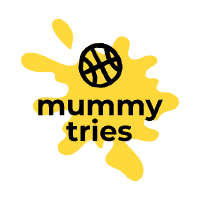Parents and caregivers of infants often notice their babies tense up and shake when excited. While this behavior can be concerning, it is usually harmless and a natural response to stimulation. Understanding why babies shake when excited and what to do about it can help ease caregivers’ worries and ensure the baby’s safety and comfort.
Babies’ excitement responses are closely tied to their developing nervous system. As their brains mature, babies become more aware of their surroundings and their bodies’ responses to stimuli. Excitement can cause babies to tense up and shake as they try to process the sensory input. This behavior can be seen in a variety of situations, such as when a baby sees a familiar face, hears a favorite song, or experiences a new sensation.
Understanding Baby’s Excitement Responses
Babies have a variety of behaviors when they get excited. Some of these behaviors include shaking, tensing up, clenching their fists, and widening their eyes. These behaviors are normal physiological reactions to excitement and are nothing to be worried about.
Normal Physiological Reactions
When a baby gets excited, their muscles may receive too many electrical impulses, which can result in twitching, shaking, or tensing up. This is because their nervous system is still developing, and their bodies are learning to process and respond to different stimuli. Babies may also move their arms and legs more rapidly when they’re excited, which is another normal response to excitement.
Identifying Overstimulation
While these behaviors are normal, it’s important to be able to identify when a baby is becoming overstimulated. Overstimulation can cause a baby to become fussy, irritable, or even upset. Signs of overstimulation may include the baby stiffening up, arching their body or head, or avoiding eye contact.
To prevent overstimulation, it’s important to pay attention to a baby’s cues and limit their exposure to overly stimulating environments. This can include reducing noise levels, limiting the number of people around the baby, and avoiding bright lights or flashing objects.
In conclusion, understanding a baby’s excitement responses is important for parents and caregivers. While shaking, tensing up, and other behaviors are normal physiological reactions to excitement, it’s important to be able to identify signs of overstimulation and take steps to prevent it. By paying attention to a baby’s cues and limiting their exposure to overly stimulating environments, parents can help ensure that their baby stays happy and healthy.
Developmental Perspectives
Moro Reflex
The Moro reflex, also known as the startle reflex, is a primitive reflex that is present in newborns and disappears around 4-6 months of age. When a baby experiences a sudden movement or noise, they may throw their arms and legs out and then pull them back in. This reflex is a normal part of development and is a sign that the baby’s nervous system is functioning properly. However, if the Moro reflex persists beyond 6 months of age or is absent, it may be a sign of developmental delay.
Developmental Milestones
Babies go through many developmental milestones in their first year of life. These milestones include rolling over, sitting up, crawling, and walking. It is important to note that each baby develops at their own pace, and some babies may reach these milestones earlier or later than others. However, if a baby is significantly delayed in reaching these milestones, it may be a sign of a developmental delay.
An immature nervous system is the main reason why a baby shakes when they are excited. When a baby is excited by a person, toy, or sound, their brain can sometimes send too many electrical signals through their central nervous system. This can cause the baby to shake or tremble. It is important to note that this is a normal part of development and is not a cause for concern unless it is accompanied by other symptoms.
Infant shudder syndrome is a rare condition that can cause a baby to shake or shudder. This condition is characterized by brief episodes of shaking or shuddering that typically last less than 10 seconds. The cause of infant shudder syndrome is unknown, but it is thought to be a benign condition that does not require treatment.
In conclusion, a baby shaking or tensing up when excited is a normal part of development. However, if this behavior is accompanied by other symptoms or delays in reaching developmental milestones, it may be a sign of a developmental delay. Parents should consult with their pediatrician if they have any concerns about their baby’s development.
Recognizing Neurological Conditions
Neurological conditions are disorders that affect the nervous system, including the brain, spinal cord, and nerves. These conditions can cause a wide range of symptoms, including seizures, tremors, and muscle spasms. In some cases, these symptoms may be a sign of a more serious condition.
Infantile Spasms and West Syndrome
Infantile spasms, also known as West syndrome, is a rare form of epilepsy that typically affects infants under the age of one. This condition is characterized by a specific type of seizure called a spasm, which can cause the baby’s body to stiffen and jerk. These spasms can occur in clusters and may cause the baby to cry out or lose consciousness.
West syndrome is often accompanied by a specific pattern of brain activity called hypsarrhythmia, which can be detected using an electroencephalogram (EEG). Early diagnosis and treatment of this condition is essential, as it can cause developmental delays and cognitive impairment if left untreated.
Epilepsy and Seizure Disorders
Epilepsy is a neurological disorder that causes recurrent seizures. Seizures can take many forms, including convulsions, muscle spasms, and loss of consciousness. Epilepsy can be caused by a variety of factors, including brain damage, genetics, and infections.
Seizure disorders can also be a symptom of other neurological conditions, such as autism and hypertonia. Diagnosis of these conditions typically involves a combination of medical history, physical examination, and diagnostic tests such as an EEG.
Treatment for neurological conditions varies depending on the underlying cause and severity of the symptoms. In some cases, medication may be prescribed to help control seizures and other symptoms. In more severe cases, surgery may be necessary to remove damaged tissue or correct structural abnormalities in the brain.
Overall, it is important to seek medical attention if you suspect that your baby may be experiencing seizures or other neurological symptoms. Early diagnosis and treatment can help prevent long-term complications and improve outcomes for your child.
Addressing Physical and Emotional Triggers
Babies may tense up and shake when they are excited, happy, or overstimulated. While these behaviors are normal and often harmless, it is important to understand the underlying triggers that may cause them. By addressing physical and emotional triggers, parents and caregivers can help babies feel more comfortable and secure.
Feeding and Sleeping Patterns
A baby’s feeding and sleeping patterns can have a significant impact on their behavior. When a baby is hungry or tired, they may become fussy, irritable, and more prone to shaking or tensing up. To avoid these triggers, parents should establish a consistent feeding and sleeping routine that meets the baby’s needs. This can include feeding the baby on demand, creating a peaceful sleep environment, and ensuring that the baby is getting enough rest.
Dealing with Frustration and Pain
Babies may also tense up and shake when they are frustrated or in pain. This can be caused by a variety of factors, such as teething, joint pain, or even cerebral palsy. To address these triggers, parents should be attentive to the baby’s cues and provide comfort and support as needed. This can include offering teething toys, using pain relief medication if necessary, and providing gentle massages or stretches to relieve joint pain.
It is important to note that babies may also become upset and frustrated when they are learning new skills, such as standing or crawling. In these cases, parents should offer encouragement and support while also allowing the baby to explore and learn at their own pace. By balancing the baby’s needs for comfort and exploration, parents can help them feel more secure and confident.
Consulting Healthcare Professionals
If a parent notices that their baby is tensing up and shaking when excited, it is important to consult with a healthcare professional. A pediatrician is the best person to consult in this situation. They will evaluate the baby’s symptoms and determine whether there is an underlying medical condition causing the shaking.
Parents should also discuss their family’s medical history with the pediatrician. Certain conditions can be hereditary, and this information can help the doctor make an accurate diagnosis. Additionally, the pediatrician may ask about the baby’s birth history, including any complications during delivery or in the neonatal period.
One possible cause of a baby shaking when excited is overstimulation. If a baby is playing or walking and becomes overstimulated, they may start to twitch or shake. In this case, it is important to remove the baby from the overstimulating environment and allow them to calm down.
Another possible cause of a baby shaking when excited is a vitamin D deficiency. Vitamin D is important for bone health and muscle function, and a deficiency can cause muscle weakness and tremors. If the pediatrician suspects a vitamin D deficiency, they may recommend a blood test to check the baby’s vitamin D levels.
In summary, if a baby is tensing up and shaking when excited, it is important to consult with a pediatrician. The doctor will evaluate the baby’s symptoms and determine whether there is an underlying medical condition causing the shaking. Parents should also discuss their family’s medical history with the pediatrician and be aware of the possible causes of shaking, including overstimulation and vitamin D deficiency.
Frequently Asked Questions
Is it normal for a 1-year-old to tense up and shake when excited?
Yes, it is normal for a 1-year-old to tense up and shake when excited. According to Parental Questions, babies’ nervous systems are still developing, and their muscles receive too many electrical impulses, resulting in twitching. This is why babies may shake when they are excited.
What causes a 9-month-old to stiffen and tremor when experiencing excitement?
According to What to Expect, a 9-month-old may stiffen and tremor when experiencing excitement due to their immature nervous system. Babies’ nervous systems are still developing, and their muscles receive too many electrical impulses, resulting in twitching.
At what age should I be concerned about my toddler tensing and shaking with excitement?
Tensing and shaking with excitement is normal in babies and toddlers, and it is not a cause for concern. However, if the shaking is severe or accompanied by other symptoms, such as fever or lethargy, it is best to consult a pediatrician.
Could frequent body tensing and shaking in my baby indicate a neurological condition?
Frequent body tensing and shaking in babies is usually normal and not a cause for concern. However, if the shaking is severe or accompanied by other symptoms, such as developmental delays or seizures, it may indicate a neurological condition. In such cases, it is best to consult a pediatrician.
What are the common reasons for an 8-month-old to shake when excited?
According to MomInformed, common reasons for an 8-month-old to shake when excited include their immature nervous system, excitement, and self-soothing.
Should I consult a pediatrician if my 3-year-old child tenses up and shakes when excited?
Tensing up and shaking when excited is normal in babies and toddlers, and it is not a cause for concern. However, if the shaking is severe or accompanied by other symptoms, such as developmental delays or seizures, it may indicate a neurological condition. In such cases, it is best to consult a pediatrician.

My name is Laura, and as a mother of two, I understand firsthand the joys and challenges of raising a child. That’s why I created this website, to provide a comprehensive and trustworthy source of information and support for new and expectant parents.





